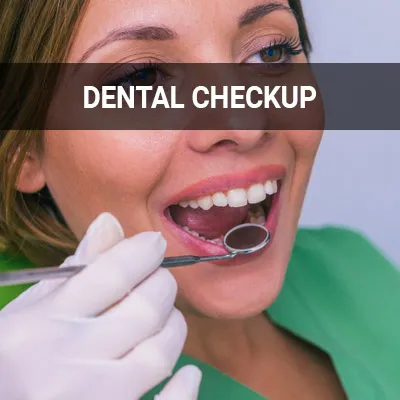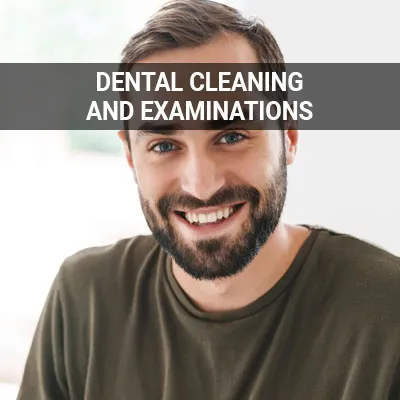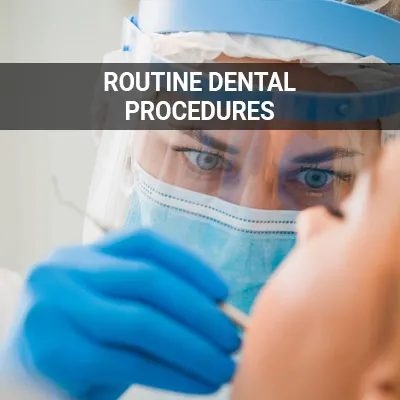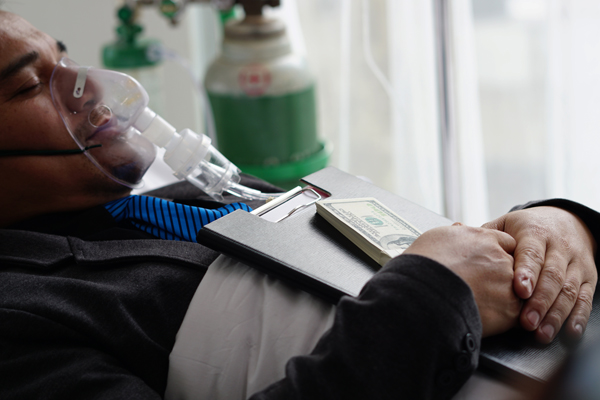Dental Anxiety Charleston, SC
Dental anxiety is a fairly common term used to describe patients of all ages who are anxious about visiting the dentist. Although many people experience this at least once in their lives, especially as young children, it can become a problem for both oral and general health. Understanding what dental anxiety and dental phobia are and how to control them can greatly boost health levels, helping to reverse the scenario so that you or your child enjoy visiting the dentist.
Information on dental anxiety is available at Hudgens Dental in Charleston and the surrounding area. We can help you better understand the treatments we offer and how each procedure goes. This can reduce anxiety levels or completely obliterate them. Call us today at (843) 588-5115 to schedule an appointment or learn more about our services.
What is Dental Anxiety?
Dental anxiety is a term used to describe feelings of fear, anxiety, or stress associated with visiting a dentist or undergoing a dental procedure. The Adult Dental Health Survey (2009) found that 12% of adults had extreme dental anxiety, while over a third (36%) had moderate dental anxiety. These feelings are quite common because of fear or trauma related to certain triggers, such as needles, drills, or the dental setting in general, that are brought on in early childhood. However, dental anxiety and phobias are often the result of avoiding crucial dental appointments and can significantly affect oral health.
Dental Anxiety or Dental Phobia
The terms dental anxiety and dental phobia are often used interchangeably, although they have a few slight differences. Dental phobia refers to an irrational fear that prohibits an individual from visiting a dentist or who may incur severe physical and mental symptoms when at the dentist. Some of these symptoms include sweating, racing heartbeat, crying, panic, and withdrawal. Patients with severe dental anxiety or phobia are generally advised to seek psychological help as their anxiety may be related to a more serious condition.
“However, dental anxiety and dental phobia are often the result of avoiding crucial dental appointments and can significantly affect oral health.”
Causes of Dental Anxiety and Phobia
Dental anxiety and phobia can stem from a variety of different factors. They usually tend to spark up during early childhood and stay with patients into adolescence and adulthood if kept unmanaged. While dental anxiety or phobia is often a result of genetic or behavioral reasons, there are common causes that patients have in common with these conditions.
These common causes include fear of pain, fear of injections, fear of anesthesia or its side effects, feelings of helplessness or lack of control, embarrassment, and lack of personal space. The feelings of fear can be associated with trauma-induced experiences as a child or unknowingness resulting from never trying a dental procedure. The other feelings listed relate to the self and how we feel when someone is taking charge of our body or mind. Building a strong relationship with your dental provider can greatly ease these feelings.
“…common causes include fear of pain, fear of injections, fear of anesthesia or its side effects, feelings of helplessness or lack of control, embarrassment, and lack of personal space.”
Coping with Dental Anxiety
Dealing with a dismissive dentist may only make the problem worse. Therefore, the first step to managing dental anxiety is finding the right dentist. Patients should also ask office staff about any recommended coping strategies and agree on a signal to let the dentist know if they need to take a break.
Mindfulness techniques can also help. Patients may want to try breathing exercises or doing body scans while in the dentist's chair. Others may benefit from distracting themselves by doing things like wearing headphones or occupying their hands.
Additionally, patients should let the dentist know if they are particularly sensitive to pain, even with local anesthesia. There is no need for patients to feel embarrassed about asking questions or being open about their fear. This is the only way to develop a truly individualized plan to attack one's dental anxiety.
“There is no need for patients to feel embarrassed about asking questions or being open about their fear.”
Check out what others are saying about our dental services on Yelp: Dental Anxiety in Charleston, SC
Sedation & Dental Anxiety
Some patients with more severe dental anxiety may require more intensive management measures. These include:
- Relative Analgesia: Also known as “laughing gas,” relative analgesia consists of patients receiving a combination of oxygen and nitrous oxide through a mask fitted to their face. This treatment is quick to take effect and also quick to wear off. Patients remain awake but feel relaxed for the procedure.
- Anxiety Medication: Typically, anxiety medication for dental anxiety comes in the form of a pill. It may be prescribed either by a dentist or a doctor. The patient will take a single, short-acting dose about one hour before their dental appointment.
Not all forms of sedation are appropriate for everyone or every dental procedure. Our qualified team works closely with our patients to take the proper measures to provide the most comfortable experience possible.
“Some patients with more severe dental anxiety may require more intensive management measures.”
Questions Answered on This Page
Q. How can I cope with dental anxiety?
Q. Can I be sedated for my dental anxiety?
Q. What are the causes of dental anxiety and phobia?
Q. What is dental anxiety in children?
People Also Ask
Q. What types of dental procedures require sedation?
Q. What happens during a dental check-up?
Q. What should I look for in a dental provider?
Q. What other resources can I use to find a dentist?
Q. What factors should people consider when choosing a dental insurance plan?
Dental Anxiety in Children
Dental fear and anxiety are most common in young children, with an increased prevalence in children aged 7 to 9. The study found that children with dental anxiety or phobia were more likely to acquire new carious lesions, experience toothaches, and require extractions. Parents play an important role in keeping children calm and helping them understand the importance of oral health. Avoid sharing too many details about their treatment or what they should expect.
Pediatric and family dentists are especially trained in explaining dental procedures in a calm, friendly, and simple manner. They can also provide certain strategies that they find works for their young patients. A kid-friendly dentist usually informs children about dental tools and injections and often lets them touch safe ones to ease their discomfort. Parents of children with dental anxiety or phobia should relay their concerns with the dentist on the first visit to keep them aware for all subsequent visits.
“…children with dental anxiety or phobia were more likely to acquire new carious lesions, experience toothaches, and require extractions.”
Frequently Asked Questions
Q. How can dentists help with anxiety?
A. Dentists who understand anxiety use simple techniques to keep their patients calm during treatment. For example, they may inform them about what they are feeling, will be feeling soon, and for how long. They take frequent breaks and ask the patient for permission to continue or if they would like to stop completely. They can also adjust anesthesia levels to keep the patient comfortable even after the procedure.
Q. How is severe dental anxiety treated?
A. Severe anxiety or phobia, dental or otherwise, should be properly diagnosed and treated by a certified psychologist as they can be a result of another mental disorder or condition. Also, dentists have limited training in treating dental anxiety and will only use the techniques they know. We may refer patients to a psychologist or prescribe anti-anxiety medications as needed.
Q. How common is dental anxiety in children and adults?
A. According to a 2014 study, "Dental anxiety, or dental fear, is estimated to affect approximately 36% of the population, with a further 12% suffering from extreme dental fear." Dental anxiety affects people of all ages and backgrounds for various reasons.
Q. How do you know if you have dental anxiety?
A. The most common symptoms of dental anxiety include fear or failure of visiting a dentist, sweating, racing heartbeat, low blood pressure, crying, and withdrawal. There is a long list of common symptoms that patients may also experience.
Q. Why do I have dental anxiety if I have not experienced any pain or trauma in the past?
A. Dental anxiety can stem from a variety of different factors and can arise at any time during our lives. Some patients acquire dental anxiety as a result of a new dentist, past experiences of a friend or family member, or associated fear from online content about a procedure. In most cases, this is a mild or singular form of anxiety.
Dental Terminology
Helpful Related Links
- American Dental Association (ADA). Glossary of Dental Clinical Terms. 2025
- American Academy of Cosmetic Dentistry® (AACD). Home Page. 2025
- WebMD. WebMD’s Oral Care Guide. 2025
About our business and website security
- Hudgens Dental was established in 1996.
- We accept the following payment methods: American Express, Cash, Check, Discover, MasterCard, and Visa
- We serve patients from the following counties: Charleston County
- We serve patients from the following cities: Charleston, Mount Pleasant, James Island, Ravenel, Meggett, North Charleston, Daniel Island, and West Ashley
- Healthgrades. View Background Information and Reviews
- Norton Safe Web. View Details
- Trend Micro Site Safety Center. View Details
Back to top of Dental Anxiety











